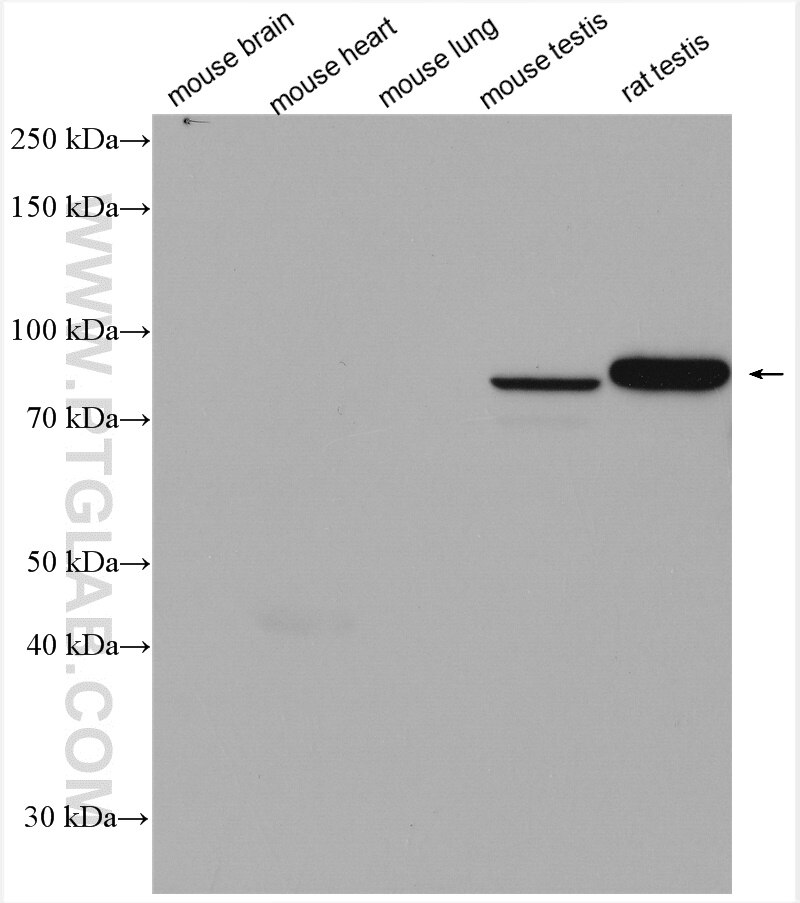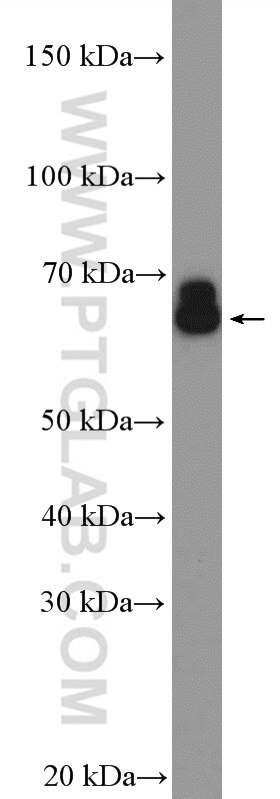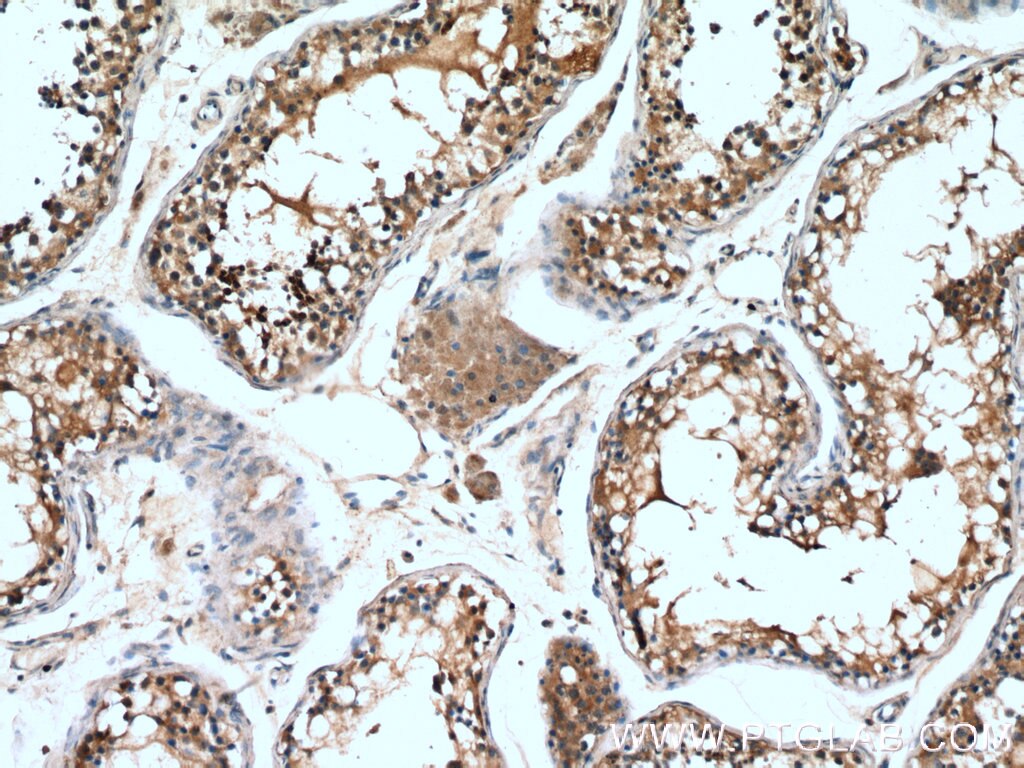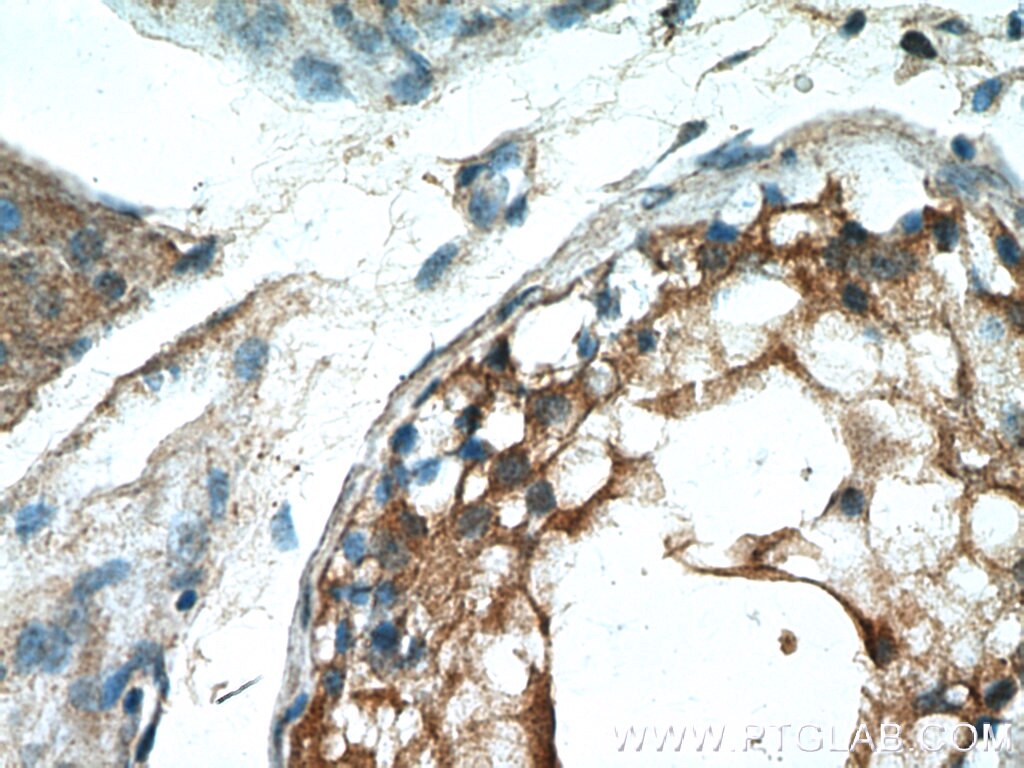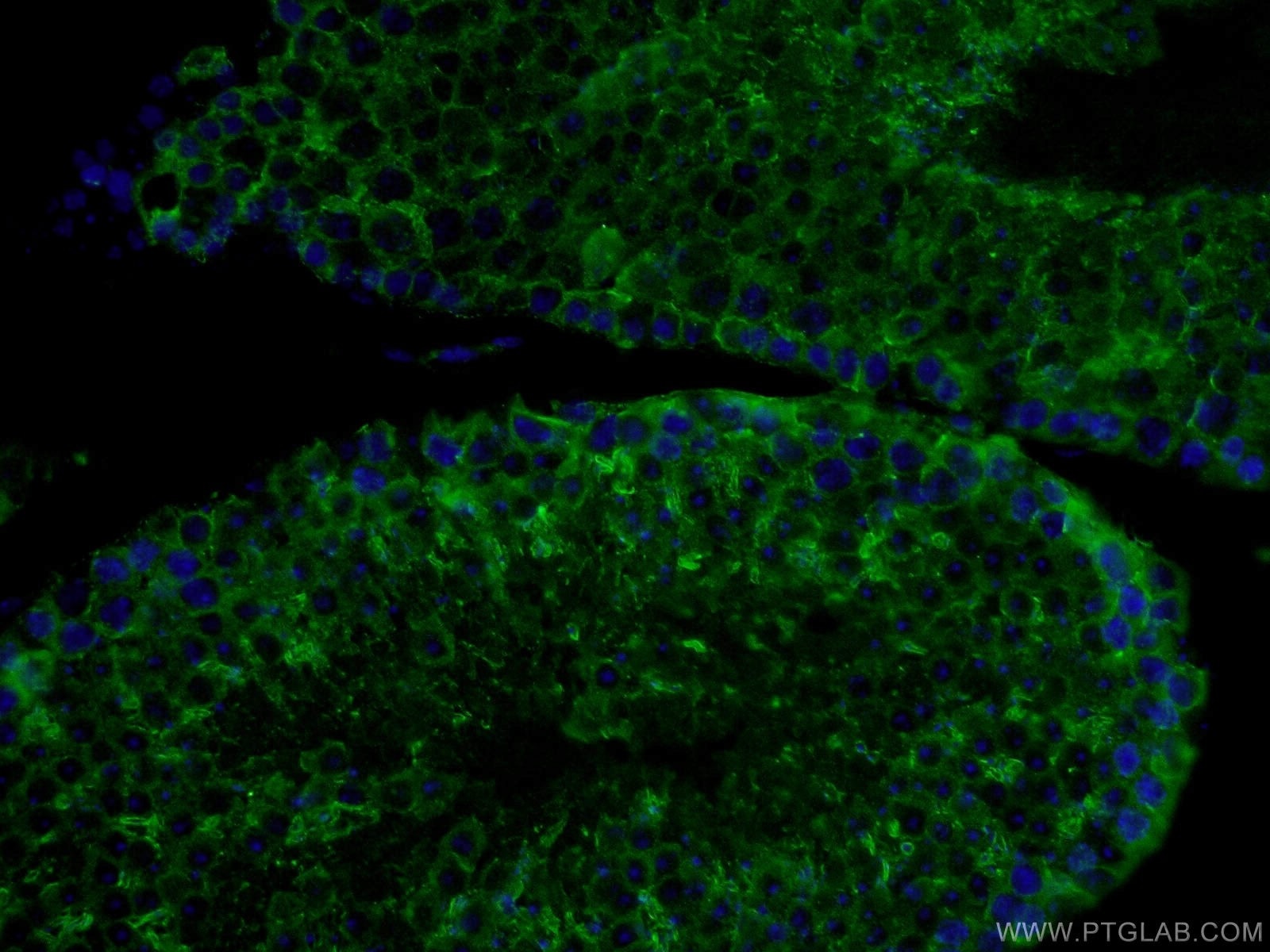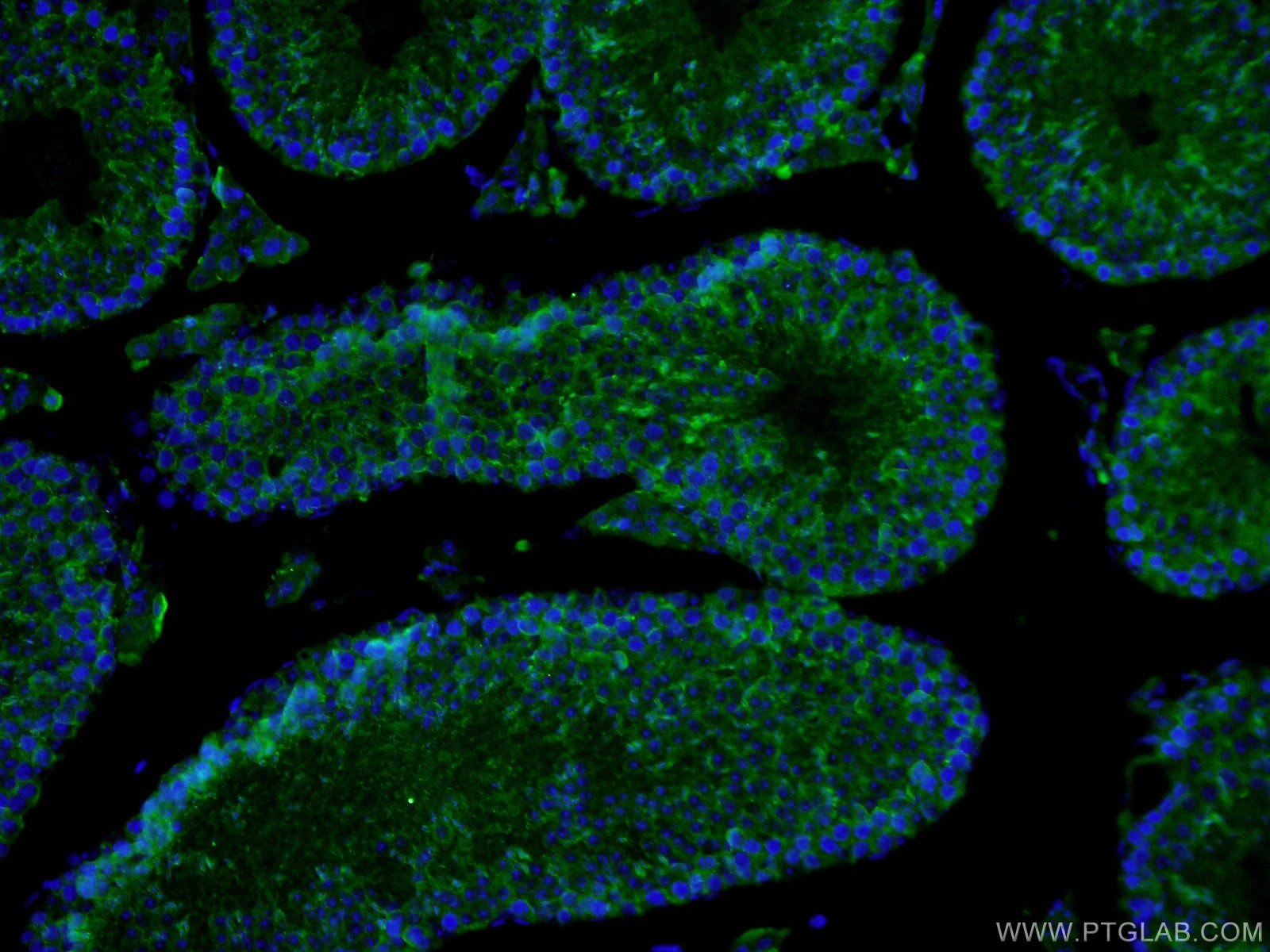PDILT Polyklonaler Antikörper
PDILT Polyklonal Antikörper für IF, IHC, WB, ELISA
Wirt / Isotyp
Kaninchen / IgG
Getestete Reaktivität
human, Maus, Ratte
Anwendung
WB, IHC, IF, ELISA
Konjugation
Unkonjugiert
Kat-Nr. : 26305-1-AP
Synonyme
Galerie der Validierungsdaten
Geprüfte Anwendungen
| Erfolgreiche Detektion in WB | Maushodengewebe, Rattenhodengewebe |
| Erfolgreiche Detektion in IHC | humanes Hodengewebe Hinweis: Antigendemaskierung mit TE-Puffer pH 9,0 empfohlen. (*) Wahlweise kann die Antigendemaskierung auch mit Citratpuffer pH 6,0 erfolgen. |
| Erfolgreiche Detektion in IF | Maushodengewebe |
Empfohlene Verdünnung
| Anwendung | Verdünnung |
|---|---|
| Western Blot (WB) | WB : 1:1000-1:6000 |
| Immunhistochemie (IHC) | IHC : 1:100-1:400 |
| Immunfluoreszenz (IF) | IF : 1:50-1:500 |
| It is recommended that this reagent should be titrated in each testing system to obtain optimal results. | |
| Sample-dependent, check data in validation data gallery | |
Produktinformation
26305-1-AP bindet in WB, IHC, IF, ELISA PDILT und zeigt Reaktivität mit human, Maus, Ratten
| Getestete Reaktivität | human, Maus, Ratte |
| Wirt / Isotyp | Kaninchen / IgG |
| Klonalität | Polyklonal |
| Typ | Antikörper |
| Immunogen | PDILT fusion protein Ag23675 |
| Vollständiger Name | protein disulfide isomerase-like, testis expressed |
| Beobachtetes Molekulargewicht | 67 kDa, 75 kDa |
| GenBank-Zugangsnummer | BC042607 |
| Gene symbol | PDILT |
| Gene ID (NCBI) | 204474 |
| Konjugation | Unkonjugiert |
| Form | Liquid |
| Reinigungsmethode | Antigen-Affinitätsreinigung |
| Lagerungspuffer | PBS mit 0.02% Natriumazid und 50% Glycerin pH 7.3. |
| Lagerungsbedingungen | Bei -20°C lagern. Nach dem Versand ein Jahr lang stabil Aliquotieren ist bei -20oC Lagerung nicht notwendig. 20ul Größen enthalten 0,1% BSA. |
Hintergrundinformationen
PDILT, a divergent testis-specific protein disulfide isomerase with a non-classical SXXC motif that engages in disulfide-dependent interactions in the endoplasmic reticulum (PMID: 15475357). PDILT interacts with CALR3 in the testicular germ cells and plays an indispensable role in the disulfide formation in the ADAM3. The PDILT knockout mice were male infertile, consistent with the previous observations that spermatozoa lacking ADAM3 cannot migrate through the UTJ and cannot bind to the ZP (PMID: 22357757). It can be detected as 67 kDa and 75kDa due to the glycosylation.
Protokolle
| Produktspezifische Protokolle | |
|---|---|
| WB protocol for PDILT antibody 26305-1-AP | Protokoll herunterladen |
| IHC protocol for PDILT antibody 26305-1-AP | Protokoll herunterladen |
| IF protocol for PDILT antibody 26305-1-AP | Protokoll herunterladen |
| Standard-Protokolle | |
|---|---|
| Klicken Sie hier, um unsere Standardprotokolle anzuzeigen |
